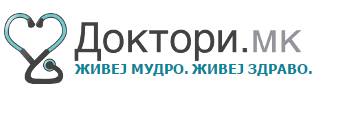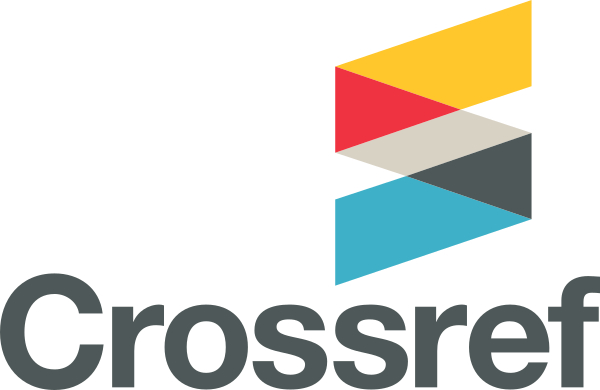JSER Policies
JSER Online
JSER Data
Frequency: quarterly
ISSN: 1409-6099 (Print)
ISSN: 1857-663X (Online)
Authors Info
- Read: 74100
|
УЛОГАТА НА ДЕФЕКТОЛОГОТ ВО ДЕФЕКТОЛОШКАТА ДИЈАГНОСТИКА
|
|
THE ROLE OF SPECIAL TEACHER IN SPECIAL
Lidija BAJLOZOVA
|
||
|
|
|
|
||
|
Вовед |
|
Introduction |
||
|
Човекот како биопсихосоцијална целина на соматски, ментални и општествени компоненти, кои се меѓусебно зависни и обусловени од раѓањето и низ целиот живот е изложен на разни влијанија. Сето тоа се одразува најразлично врз неговата целокупна личност. Нарушувањето на интегритетот на личноста доведува до нарушување на биопсихосоцијалниот ентитет, кое бара тимска работа од стручњаци од разни профили: лекари, психолози, дефектолози, социјални работници, работни инструктори.Рехабилитацијата како предмет на дефектологијата има карактер на интегрален пристап. Интегралната рехабилитација ја сочинуваат клиничкиот, едукативниот и социјално-економскиот дел. |
Human beings, as a bio-psycho-social unity of somatic, mental and social components, mutually dependant and conditioned, since birth and throughout the entire life have been under different kinds of influences which are reflected on their personalities. The impaired integrity of the personality brings impairments to bio-psycho-social entity that requires team and professional work of different profiles: doctors, psychologists, special teachers, social workers and instructors.Rehabilitation as a subject of Special Education has a character of integral approach. ntegral rehabilitation is consisted of clinical educational and socio-economic part. The clinical part of rehabilitation remarkably lags behind the educational part. The lack of organized, as well as sanctioned by law practice – which would implement prevention, detection, diagnosis and treatment – disables the development of scientifically based and socially justified system of rehabilitation of people with disabilities. Special Education and Rehabilitation work compared with medical one as a specific, consists in itself preventive activities. According to that, the clinical part consists of prevention, detection, report and evidence, diagnosis, prognosis and treatment. The special teacher, as a member of one polyvalent team, with diagnostic procedures and professional training in the education and rehabilitation process, gives enormous contribution to discovering a great number of hereditary, congenital or early gained reasons, as well as prevention of consequences on the personality’s development. I would like to emphasize the role of the special teacher in the process of Special Education and Rehabilitation diagnosis as a component of clinical Special Education and Rehabilitation that has priceless importance for the whole rehabilitation success. The prompt detection and right diagnosis enable to remove and moderate or to bring to level of tolerance all developmental disabilities in order to achieve maximum developmental level of the personality’s abilities. This shows that the clinical part of rehabilitation lags behind the educational part. The lack of organized, as well as sanctioned by law practice – which would implement prevention, detection, diagnosis and treatment – disables the development of scientifically based and socially justified system of rehabilitation of people with disabilities. (2, 3)
|
|||
|
|
|
|
||
|
|
|
|
||
|
ПРЕДМЕТ НА ИСТРАЖУВАЊЕТО |
|
RESEARCH OBJECTIVE |
||
|
Улогата на дефектологот во дефектолошката дијагностика. |
|
The role of the special teacher in Special Education and Rehabilitation diagnosis |
||
|
|
|
|
||
|
ЦЕЛИ НА ИСТРАЖУВАЊЕТО |
|
RESEARCH GOALS |
||
|
Да се види улогата на дефектологот во примената на општата дефектолошка дијагностика кај децата со пречки во развојот. |
|
The research goals are to investigate the role of the special teacher in implementation of general Special Education and Rehabilitation diagnosis of children with developmental disabilities. |
||
|
|
|
|
||
|
ХИПОТЕЗИ |
|
HYPOTHESES |
||
|
Хипотеза 1-Се претпоставува дека општата дефектолошка дијагностика треба да биде инструмент за работа на дефектологот во процесот на едукацијата и рехабилитацијата на лицата со пречки во развојот. |
|
Hypothesis 1 – It is assumed that general Special Education and Rehabilitation diagnosis has to be a working tool for the special teacher in the process of education and rehabilitation of people with developmental disabilities. |
||
|
|
|
|
||
|
Улогата на дефектологот во |
|
The role of special teacher |
||
|
Дефектологот со примена на општата дефектолошка дијагностика е во можност да изврши дополнување на описот на личноста на детето од аспект од кој не се во можност тоа да го сторат ни медицинската ни психолошката дијагностика.
Дефектологот, кој се занимава со дефектолошка дијагностика, стои пред едно големо подрачје на активности. Како дијагностичка метода користи анамнеза, опсервација и процена.
Опсервацијата, како стручно изведена дијагностичка постапка, го дава преминот од субјективното доживување на детето од дефектологот кон објективизирање на неговите квалитети и неговите проблеми.
Опсервациите може да бидат систематски и несистематски. Кај несистематските опсервации информациите имаат предност во тоа што се добиваат во природна средина, овозможуваат набљудување и природно држење во различни средини и во дадени услови, т.е. во услови на интеракција на случајот во средината. Во таквите случаи дијагностичарот го дијагностицира држењето, карактеристиките и личната интеракција за кои смета дека се од значење. Главниот недостаток на несистематските информации е нивната преголема субјективна обоеност.
стручниот тим е во можност да изнесе еден побогат наод за детето во кој се опишуваат неговите потенцијали и можноста за користење на тие потенцијали во социјалното поле. Значи, дефектологот ја набљудува телесноста во акција-движење. Тој анализира дали опишаниот квалитет на движење му овозможува детето да организира активности во просторот на манипулативното поле, правилно да го држи пенкалото, телото, главата, да го врши чинот на пишување, или дали детето може да стои и да трча во група. Ниеден дефектолог не може комплетно да í пристапи на својата работа додека не се информира за тоа каква е организацијата на движењата и телесноста на детето во контекст на телото, како фактор на психичкиот развој и социјализацијата. Дефектологот го интересира дали детето, со кое работи, има изедначеност на сите квалитети на психомоторната организираност и дали тоа, на соодветен начин, одговара на барањата што се јавуваат во полето на реалноста. |
|
The special teacher, with the change of general Special Education and Rehabilitation diagnosis, is able to supplement the description of child’s personality from the aspect that is not possible to be described by medical and psychological diagnosis.The special teacher, who is not involved in Special Education and Rehabilitation diagnosis, is faced with a huge area of activities. The special teacher uses anamnesis, observation and estimation as a diagnostic method.
The observation as professionally performed diagnostic procedure gives the pass from special teacher’s subjective experience of the child to objective attitudes of qualities and problems.
The observations can be systematic and non-systematic. The advantage of non-systematic observations is that the information is acquired in natural environment, enables observation and natural behavior in different environments and in given conditions, i.e. in cases of interaction in the environment. In such cases, the diagnostician diagnoses the behavior, characteristics and personal interaction that are considered to be important. The main disadvantage of non-systematic information is its enormous subjectivity.
professional team, the special teacher presents with many details the findings of child’s potentials and abilities used in the social field. The special teacher observes the body movements in action. He analyzes whether the described quality of movements enables the child to organize activities in the space of the manipulative field, right use of pen, body and head, to write or whether the child can stand or run in the group. The special teacher cannot work without complete information about the movement organization and the child’s physical abilities in the context of the body as a factor of psychic development and socialization. The special teacher is interested in whether the child has equal qualities of psycho-motor organization and whether the child responds in appropriate way to the requirements of the reality.
Special teachers must not bring down the Special Education and Rehabilitation diagnosis to performing ritual movements they acquired somewhere and are considered to be professional.
Special Education and Rehabilitation is an interdisciplinary science. It has to initiate organization of multi disciplinary teams. The special teacher will present general Special Education and Rehabilitation status and the status for specific disabilities since each diagnostic procedure should be done within the multi disciplinary team. The general Special Education and Rehabilitation finding will enable insight other people’s characteristics and supplements the description of clinical manifestations of the examined people noticed by other members of the team – psychologist, neuro-psychiatrist, pediatrician, social worker and others. The diagnostic findings of the health worker and the psychologist in relation to the structures and functions and the diagnostic of special teacher in relation to the willing activity directed to others supplement each other in the complete description of the personality. (1, 4) |
||
|
|
||||
|
|
||||
|
|
||||
|
|
||||
|
Дефектологот не смее дефектолошката дијагностика да ја сведе на изведување ритуални движења, кои некаде ги научил, а кои се сметаат за стручни.
Дефектологијата е интердисциплинарна. Таа мора да биде иницијатор за организирање на мултидисциплинарните тимови. Со оглед на тоа дека секоја дијагностичка постапка треба да се изврши мултидисциплинарно во рамките на тимот, дефектологот ќе го изнесе општиот дефектолошки статус и статусот за специфичноста на дефективитетот. Општиот дефектолошки наод ќе овозможи увиди во другите својства на личноста и служи за дополнување описот на клиничките манифестации на испитаникот, што ги забележале и другите членови на тимот - психолог, невропсихијатар, педијатар, социјален работник и др. |
|
|||
|
Дијагностичките наоди на здравствениот работник и психологот, во врска со структурите и функциите, и дијагностиката на дефектологот, во врска со волевата активност насочена кон другите, се надополнуваат во целосен опис на личноста. (1, 4) |
|
|||
|
|
|
|
||
|
Заклучок |
|
Conclusion |
||
|
Кај нас дефектолошката дијагностика уште не е институционализирана, не е нормативно определена, поставена и професионално определена. Уште ја имаме практиката на класификација, и тоа врз основа на податоците од тестирање на интелигенцијата, што се изведува во медицинските и психолошки установи, која ја спроведуваат главно, лекари, и психолози. Уште се практикува категоризација, односно распоредување од стручни комисии врз основа на Правилникот за распоредување, кои во последно време работат сé повеќе во стручни установи.
Низ претходното излагање заклучивме дека личноста-како збир на физички, психички и социјални способности-трпи последици во сите сфери и ќе биде успешно третирана само со пристап на повеќе стручњаци, при што дефектологот треба да се вклучи како член на стручниот тим. Дефектологот треба да работи на полето на дефектолошката дијагностика како член на стручниот тим, што е потврда за третата хипотеза. |
|
In the Republic of Macedonia, the Special Education and Rehabilitation diagnosis is not yet institutionalized, normatively determined, set up and professionally determined. We still practice of classification on basis of data achieved from tests for intelligence, implemented by doctors and psychologists in medical and psychological institutions. We still practice categorization, i.e. assigning professional commissions according to the Rule Book for assignments, which work in professional institutions.
So far, we have concluded that the personality – as a unity of physical, psychic and social abilities – faces consequences in all spheres and will be successfully treated only with an approach by more professionals and the special teacher should be included as a member of a professional team. The special teacher should work in the field of Special Education and Rehabilitation diagnosis as a member of a professional team, as a proof of the third hypothesis. |
||
|
|
||||
|
|
|
|
||
|
Предлози |
|
Proposals |
||
|
Низ дипломската работа се обидовме да ја претставиме потребата и важноста на работата на дефектологот на полето на дефектолошката дијагностика.
Преку неа дефектологот ќе го опише владеењето на овие деца, онака како што тој го гледа. Тој ги опишува квалитетите на детето од онаа страна на забележување која претходно ја извршил педагогот. Детското отсуство на внимание или облиците на држења што не се вклопуваат во барањата на педагошката работа, дефектологот ќе ги разложи на елементарни видови на изразување на психомоторната активност, со што ќе го објасни и за себе и за другите оној друг дел на владеењето на детето што педагогот го забележува само како глобален чин. Тимот, што го сочинуваат педагог, психолог и дефектолог во училиштата, може да ги дефинира сите облици на полесна недограденост на функциите битни за психосоцијалниот развој и да ги решава на самото место.
|
|
We have tried to present the need and the importance of the special teachers’ work in the field of Special Education and Rehabilitation diagnosis.
The special teachers through it describe the behavior of these children as they experience them. They describe the child’s qualities from the pedagogue’s point of view. The child’s absence of attention or behavioral forms that do not fit into requirements of the pedagogical work, the special teachers will divide into elements of psycho-motor activity expression, explaining for themselves and for the others the other part of child’s behavior that the pedagogue has noticed as a global act. The school team consisted of a pedagogue, psychologist and special teacher can define all forms of easy undeveloped functions that are essential for psycho-social development and solve them at the very spot.
|
||
|
|
||||
|
|
|
|
||
|
|
|
|
||
|
Citation:Bajlozova L. The Role of Special Teacher in Special Education and Rehabilitation Diagnosis. J Spec Educ Rehab 2004; 5(3-4):31-42. |
||||
|
|
||||
|
Литература / References |
|
|
||
|
1. Ајдински Г. Карактеристики во развојот кај лесно ментално ретардирани ученици, Македонска ризница, Куманово, 2000. |
|
3. Ајдински Љ, Ајдински Г, Михаилов З. Основи на дефектолошката теорија и практика, Сојуз на дефектолозите на Македонија, печатница и книговезница-Зоки, Скопје, 1999. |
||
Share Us
Journal metrics
-
 SNIP 0.059
SNIP 0.059 -
 IPP 0.07
IPP 0.07 -
 SJR 0.13
SJR 0.13 -
 h5-index 7
h5-index 7 -
 Google-based impact factor: 0.68
Google-based impact factor: 0.68
10 Most Read Articles
- PARENTAL ACCEPTANCE / REJECTION AND EMOTIONAL INTELLIGENCE AMONG ADOLESCENTS WITH AND WITHOUT DELINQUENT BEHAVIOR
- RELATIONSHIP BETWEEN LIFE BUILDING SKILLS AND SOCIAL ADJUSTMENT OF STUDENTS WITH HEARING IMPAIRMENT: IMPLICATIONS FOR COUNSELING
- EXPERIENCES FROM THE EDUCATIONAL SYSTEM – NARRATIVES OF PARENTS WITH CHILDREN WITH DISABILITIES IN CROATIA
- INOVATIONS IN THERAPY OF AUTISM
- AUTISM AND TUBEROUS SCLEROSIS
- THE DURATION AND PHASES OF QUALITATIVE RESEARCH
- REHABILITATION OF PERSONS WITH CEREBRAL PALSY
- DISORDERED ATTENTION AS NEUROPSYCHOLOGICAL COGNITIVE DISFUNCTION
- HYPERACTIVE CHILD`S DISTURBED ATTENTION AS THE MOST COMMON CAUSE FOR LIGHT FORMS OF MENTAL DEFICIENCY
- DIAGNOSTIC AND TREATMENT OPTIONS IN AUTISTIC SPECTRUM DISORDERS – AN OVERVIEW
















